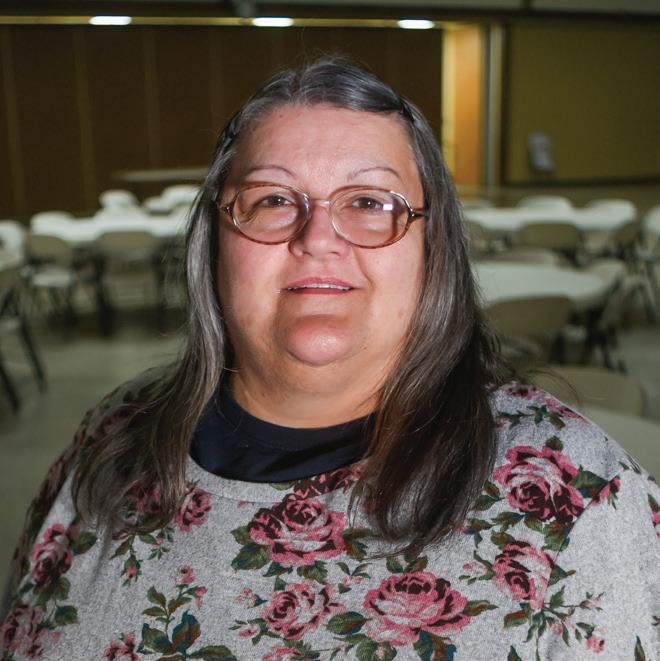
6 minute read
Dark Store Theory
A Pulaski County property tax appeal could have a disastrous effect on school funding across the state.
he “Dark Store Theory” has already wreaked havoc in other states, led by Walmart and other big box retailers looking to reduce their property taxes.
Advertisement
In the appeals, the big box owners claim their fully functioning store should be valued as if it is closed and vacant. They argue neither the cost to build a store, nor the income it generates should be considered; and the assessed value should only be based on what the building would sell for on the open market. Because these buildings were built for a specific use, and usually come with restrictions preventing a competitor from using the store in the same way, the sale prices are often much lower.
The dark store argument has seen some success in the midwest, resulting in billions of dollars in lost revenue for counties and states including Michigan, Indiana and Wisconsin, but this is the first time Walmart has attempted to use “dark store theory” in its home state. The company filed a petition with the Pulaski County Court challenging the county assessor’s assessment of eight Walmart stores and two Sam’s Clubs. The retailer wants to reduce $145 million assessed value down to $74 million, which would drain $900,000 from local property tax collections each year. This means the county would have less money for schools, roads, and other vital public services.

Good Jobs First, a nonprofit research organization that promotes accountability in economic development, investigated Walmart’s aggressive attempts to reduce their tax bills. They found the company takes a systematic approach to challenge assessments across the country, costing local governments millions each year in lost revenue. From the 2007 report:
“Our findings are consistent with Wal-Mart’s reputation for obsessive cost-cutting; they suggest that the company treats property taxes the same way it treats suppliers and workers. But in this case, entire communities are affected. For only two things can happen when large companies like Wal-Mart reduce their property tax payments: either local public
services are cut back or small businesses and homeowners are asked to pay more in taxes. Usually, it is some of both.”
Lindsey Bailey French, Legal Counsel for the Arkansas Association of Counties, warns the Pulaski County assessment cases would just be the tip of the iceberg if the “dark store theory,” is accepted by state courts. She says Walmart will continue to make appeals around the state, and other companies will likely join in.


“People need to realize the impact it would have on our local public schools and not just in Pulaski County,” Bailey French said. “Every community that has a Dollar General store, every community that has little shops like that, they don’t realize how much those property taxes help the schools.”
About three fourths of all property taxes collected in Arkansas go to the local schools. AAC estimates a $95 million annual reduction in local tax collection if the theory is utilized by all retail in the state. If it is expanded to all commercial property, the figure balloons to more than half a billion dollars.
“I don’t see any reason why no other business would not make the same claims if it were to be granted at a statewide level,” she said. “The state does not have the general revenues to step in and pick up the pieces.” According to a November 2018 report by CityLab, “[i]n Wisconsin, at least 230 cases have been filed across 34 counties since 2015, many of them repeat appeals for the same properties, by the top three attorneys representing retailers. In Michigan, more than $75 million in tax value was lost from the rolls from related appeals between 2013 and 2015. In Indiana, an estimated $3.5 billion in property value is on the line. Texas stands to lose $2.6 billion per year if successful appeals become widespread.”
Pulaski County Judge Barry Hyde denied Walmart’s appeal, saying the comparable appraisals presented lacked credibility.
“Some of them were on the outskirts of east St. Louis, shuttered down stores,” Bailey French said. “The burden of proof is on the property owner to prove that their values are more true market value under the law than the assessor’s values.”
Walmart appealed the county judge’s decision, and now Circuit Court Judge Tim Fox will hear the cases. However, civil litigation is now on hold in Arkansas as the state attempts to limit the spread of coronavirus.
I SUPPORT FRIENDS OF PUBLIC EDUCATION
Q: How can educators support pro-public education candidates? A: Contribute to the Arkansas Committee for Children and Public Education!
Visit AEAonline.org/accpe to give today! *Donations up to $50 are tax deductible
H ME GROWN


FORREST CITY PARAPROFESSIONAL HELPS STUDENTS BUILD READING SKILLS
Sharon Pierce is on the front line of Arkansas’s push to help students overcome dyslexia.
“They’ve got to read to get along in life,” she said. “You have to have those skills to become a successful adult.”
The Forrest City School District Paraprofessional has been helping teachers for 26 years, and for the last 3 she’s also been responsible for helping students with dyslexia learn to read at Stewart Elementary. “I take them out of the class into my room where I have my supplies set up, the program, and work with them for 30 minutes doing the reading program,” she said. “I really love it. I’d almost like to do that all day, but then I would miss helping teachers.” Pierce was born in Mariana, about 20 miles to the south, but she’s lived in Forrest City since she was two years old. She worked in retail, but left to raise two boys. When they became school age she wanted to be involved in their education.
“I became a parent volunteer,” she said. “I would go into the classes when they would have birthday parties, what have you. We would take stuff in to help the teachers with that, and I really liked it.”
The volunteer work led to substitute teaching and AEA membership. When a teacher told Pierce about the association, she joined on the spot.
“I’ve actually got more years in NEA than I do under contract,” she said. “I’ve never had to use it, but I’ve felt like I have an insurance policy if I needed it. You never know when a situation might come up.” With 87% of the school’s 521 students living in poverty, Pierce says some students can be tough to reach, and often act out. “They don’t want to be at school, and they want to make it miserable on everybody around them,” she said. “It’s hard to get to those kids, but you just have to keep trying. You don’t know what is going on at home... I try to talk to them about making better choices. Sometimes they listen, and if they don’t you just try again.”

She applies the same strategy while working to overcome dyslexia and is impressed by how much the children improve with the extra attention. “You have a student that comes to you and can’t distinguish sounds and at the end of that program at the end of that year, they’re able to sound out words,” she said. “It feels like you’ve done that. You’ve helped them do that. You’ve brought it out of them. It’s a great feeling, I mean that’s what we’re there for. If we’re not helping the kids, what are we doing?”
- Sharon Pierce On the security the NEA provides








